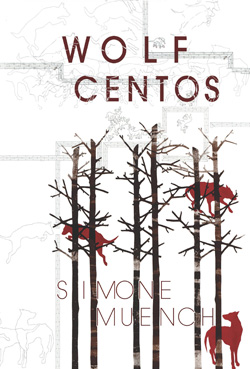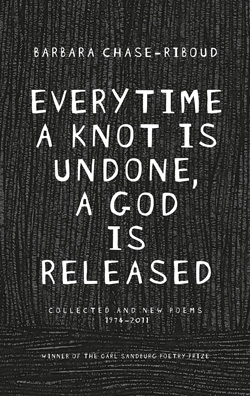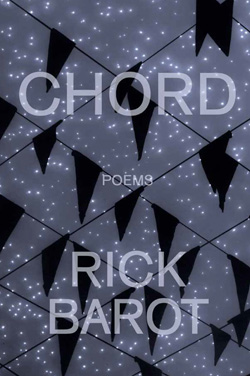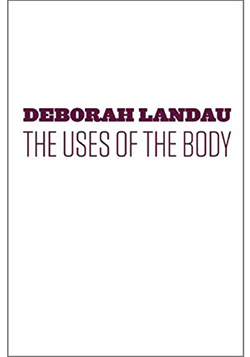 Wolf Centos
Wolf CentosThe cento form, completely constructed of lines from other poems, invites questions about source and significance: How often do the scraps in the patchwork garment refer to their text of origin? How much do they assert a new composition? How much do the seams show? Simone Muench’s Wolf Centos possesses near-invisible sutures and an uncanny smoothness in its fusion of parts. With an ear tuned to a minor key, Muench creates an integral and potent voice that sings of the “wood-world’s torn despair.” The book collages lines from nearly 200 poems written in English and other languages in translation, which she lists in the notes without signaling where and in which poems they appear. Dropping a few self-conscious hints about her practice—“I pass through them as they pass through me”—she stitches a post-apocalyptic wilderness, bleak and wintry in its liminality, but not without moments of decadent allure: “trees / dripping a thousand sugars” and “black champagne, a lamentation.” In every “Wolf Cento” a wolf appears—perhaps the poet’s animal counterpart—associated with danger, guile, defiance, and, ultimately, sadness at its misunderstood station. These talismanic poems propose that the echoing speaker might recover her own completeness by dwelling closer to a place of risk, at the edge of the wolf’s blue-tongued mouth: “When the body is cadence of shriveled / memories, do not forget to be animal.”
—Molly Bendall
 O’Nights
O’Nights
Cecily Parks
Alice James Books, $15.95 (paper)
The poems in Cecily Parks’s O’Nights are an animated reimagining of the erotics of nineteenth-century American literature—its landscapes, theories, and creators. The natural world is “gathered,” “kissed,” “licked,” and “waded into,” as are the writers Parks engages. A transgressive heroine who performs in dresses, nightgowns, nail-polish, and bobby-pins, while theorizing from Henry David Thoreau and the James siblings, Parks writes elegant lyrics that elide easily categorizable notions of gender, desire, and autonomy. O’Nights dissolves the borders between human and natural world (“I am the loudest animal here”); between a metaphorical wilderness and one’s own very real participation in the ecosystem; between animals and dreams; between self-love and lover. As in the work of Emily Dickinson or H.D., these relationships are reciprocal. At times tenuous and destructive, they produce heat and anger and want and ultimately self-creation: “I scream for a soul with a will / that huffs and puffs to fill the bud / in me with the syrup and stuffing I need / to bloom.” Highly attuned to small particulars, Parks’s poems range across landscapes from Cambridge to Chiapas, but resist claiming or marking those places as finite. It is this resistance to collection and ownership (of bodies, texts, and land) that makes the book an important instance of eco-poetics, for it asks the reader to imagine a magical wilderness that can only exist if we give way to the infinite abundance of the natural world under threat today.
—Rowena Kennedy-Epstein
 Everytime a Knot Is Undone, a God Is Released
Everytime a Knot Is Undone, a God Is Released
Barbara Chase-Riboud
Seven Stories Press, $35 (hardcover)
Renowned sculptor (most notably of the Malcolm X Steles) and author of the groundbreaking 1979 novel Sally Hemings, Philadelphia native Barbara Chase-Riboud has been less recognized for her powerful, distinctive poetry, which she has written and published steadily for decades. While often tuned-in to recent history and politics, with poems engaging figures such as Gloria Steinem, Troy Davis, and Henrietta Lacks, Chase-Riboud thrives in antiquity: “Whatever violence / I have done thee,” she writes in “Cleopatra,” “You’ve done to me tenfold. / And so we stand quits and quivering.” It is refreshing to read work that bows to no poetic trends; if Chase-Riboud has poetic sisters, they might be as distant as H.D. and Sappho. But from her idiosyncratic, at times anachronistic, stance, Chase-Riboud confronts topics of present-day relevance, such as racism and sexism, often suffusing her poems with an urgent sensuality that their formal rigidness and theatricality might at first conceal: “Our possessed bodies / Mingle with the coying odor of sanctity / A single beam of light / crosses us.” Unlike many collected poems, Everytime is presented not in chronological order but with a thoughtfulness to the organic flow of a life’s work. (Those interested in chronology can consult a biographical timeline in the back of the book.) Everytime is a necessary—and complete—introduction to an overlooked poet who is at once poised and lush, even as she uncovers the pain and ugliness “In this ridiculous mirrored palace / Of conspicuous consumption / Where I see myself, / A hysterical fool, / An aging child . . . / Doing imagined violence / To myself / Into infinity.”
—Lynn Melnick
 Chord
Chord
Rick Barot
Sarabande Books, $14.95 (paper)
Chord’s title poem, an elegy for the poet’s grandmother, examines her name as a form of memory and association: “Chord that is your name, conjugation for the sun and for consolation.” Throughout the collection, Barot explores the associative “chords” through which we perceive and construct experience, chords that in turn preserve and alter our lives, as we edit, shuffle, and revise them in conscious and unconscious acts of memory. Barot explores this loop with patient, inquisitive craft. Many of these poems observe the effects of internalizing life’s difficulties and highlight the daily glimpses and sounds that trigger “grief echoes,” associations that submerge us again in grief. The speaker of “Looking at the Romans” sees a marble bust resembling his uncle, “the retired accountant / whose mind, like a conquered country, is turning / into desert, into the dust of forgotten things.” These poems are entranced by the intricacies of the mind, the mystery of its remarkable durability and frailty. Chord also involves a subtle yet consistent consideration of (white, male, heteronormative) cultural privilege and colonialism. By frequently dipping into the “gray”—a motif describing literal hues such as the “arc of a beach” or roses in a painting and our clichéd, yet perhaps more honest, “gray areas”—Chord brings us into a nuanced understanding of how we construct the world with our minds: “You don’t have to understand it / but you will carry it anyway.”
—Wesley Rothman
 The Uses of the Body
The Uses of the Body
Deborah Landau
Copper Canyon Press, $16 (paper)
Deborah Landau’s third collection comprises five sequences of candid, wryly comical, sometimes bawdy and often disarmingly bleak lyrics of early mid-life. Driven to savor what remains of life’s “basic pleasures” but gnawed by the knowledge that “youth will burst all at once / and be gone forever,” Landau’s speaker puts the body to uses other than carnal, but sex and reproduction certainly predominate: “The urge is there / but also the mandate // to tamp it down. / Always the urge. // Always the mandate.” The book’s second sequence, “Mr and Mrs End of Suffering,” opens with a conflicted carpe diem poem rife with sexual overtones—“The uses of the body are manifold . . . You should appreciate. Don’t squander. / Take a deep juicy bite then swallow. // Peaches are meant for tasting. / In Paradise”—even as death casts its shadow over sexual bliss: “I am cozy, I am full of want until chest pain, // until a heavy cramp . . . until we have to look the unfair doctor in the eye. // The genitals are irrelevant then.” This delicate balancing act sometimes engenders startling and complex metaphors (“We are plucked and then plucked again / even as the strings go slack”), but it is Landau’s occasional rhymes, sound patterns, repetitions, and rhythms—all impeccably executed—that really give the book its irresistible immediacy. The Uses of the Body is Landau’s most powerful and distinctive collection to date.
—Robert Schnall








